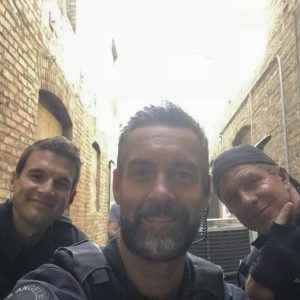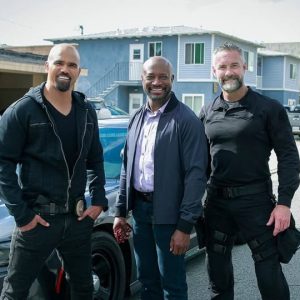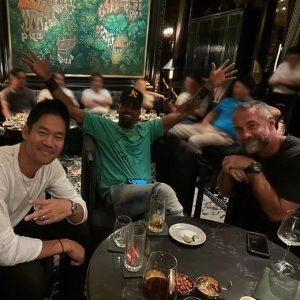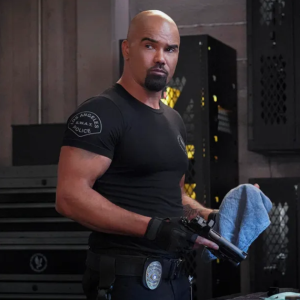The television landscape recently experienced a significant tremor with the unceremonious announcement of S.W.A.T. Exiles, a new spinoff series set to reintroduce Shemar Moore as the iconic Daniel “Hondo” Harrelson. This news, which surfaced mere days after the S.W.A.T. series finale aired, has ignited a fervent discussion among fans, oscillating between excitement for Hondo’s return and a sense of bewilderment and even betrayal concerning the original cast’s apparent exclusion. This bold strategic move by CBS signals a new direction for the popular law enforcement franchise, pushing its boundaries beyond conventional police procedural formats into uncharted territory.
At its core, S.W.A.T. Exiles centers on Hondo’s unexpected trajectory. Following a mission deemed a failure, Hondo is controversially forced into early retirement from the LAPD, a significant blow for a character synonymous with the force’s elite tactical unit. This forced departure sets the stage for a compelling personal journey, as Hondo attempts to navigate the unfamiliar landscape of civilian life, a stark contrast to the high-stakes, adrenaline-fueled existence he has always known. The narrative promises to explore the psychological toll of such a sudden transition on a man whose identity is deeply intertwined with his service. How does a career law enforcement officer, whose every instinct is geared towards protecting and serving, adapt to a life without the badge, the gun, and the camaraderie of his unit? This period of adjustment, however, is short-lived.
Hondo is inevitably drawn back into the world of covert operations, but not in a capacity he might expect. He is tasked with leading a clandestine, high-risk program, operating entirely outside the traditional law enforcement framework. His new team consists of a “ragtag” assortment of young, untested recruits, specifically described as “Gen Z operatives who’ve flunked out of traditional forces.” This premise introduces a fascinating dynamic. Hondo, a seasoned veteran steeped in conventional police protocols and discipline, must now mentor a new generation of operatives who, by their very nature, are unconventional and perhaps even rebellious. Their previous failures in traditional settings suggest a raw talent coupled with an inability or unwillingness to conform, presenting a unique challenge for Hondo as a leader.
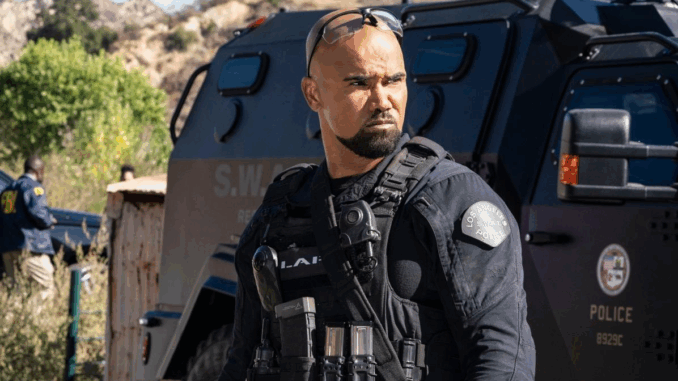
The “Exiles” are precisely that: individuals operating on the fringes, tasked with missions too delicate or too controversial for public scrutiny. This allows the series significant freedom to “bend (or break) the rules,” moving beyond the standard procedural constraints of its predecessor. Such a narrative opens up avenues for exploring moral gray zones, complex ethical dilemmas, and the blurred lines between justice and extralegal action. Themes anticipated for the series, such as redemption arcs, generation clash, authority versus rebellion, and loyalty under pressure, hint at a deeply character-driven drama. The potential for a clash of ideologies and methodologies between Hondo’s old-school approach and his younger team’s more modern, perhaps more radical, perspective could be a central tension, driving both internal team conflicts and overarching plotlines.
The timing of the Exiles announcement—just two days after the S.W.A.T. finale—has undoubtedly fueled fan reactions. Many original cast members, including David Lim (Victor Tan) and Jay Harrington (Deacon Kay), openly expressed being blindsided by the news. Lim articulated the sentiment by stating, “We weren’t even mentioned. It felt like we were brushed aside.” This lack of communication has led a segment of the fan base to feel a sense of betrayal, viewing Exiles not as a true continuation, but as a “soft reboot” that disregards the established ensemble and their contributions to the franchise’s success. While some fans are simply thrilled for Moore’s return and the prospect of new storylines, others lament what they perceive as a disrespectful handling of the original cast, potentially undermining the legacy of the flagship series.
Behind the scenes, the creative helm of S.W.A.T. Exiles is entrusted to Jason Ning as showrunner, known for his work on Lucifer and The Expanse. Ning’s background in character-driven drama infused with genre flair suggests that Exiles may indeed lean into a grittier and more serialized storytelling approach compared to the original S.W.A.T.’s largely episodic format. His involvement, alongside executive producers Shemar Moore, Neal H. Moritz, Pavun Shetty, and James Scura, brings a blend of action storytelling experience and a fresh perspective that could redefine the franchise’s tone. This team’s vision hints at a series that delves deeper into the psychological complexities of its characters and the nuanced morality of its missions, drawing inspiration from real-life whistleblowers, military black ops units, and unorthodox policing programs.
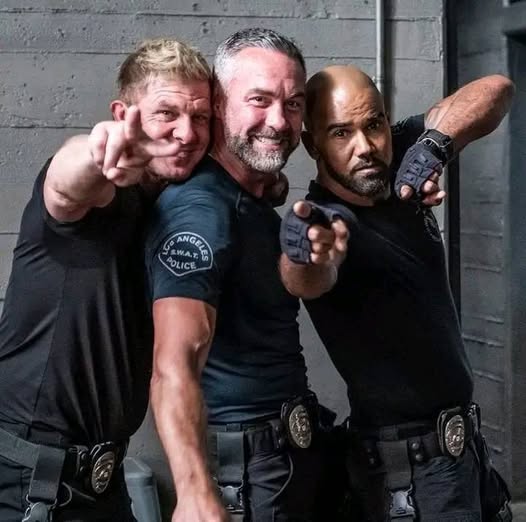
Production for S.W.A.T. Exiles is slated to commence in Los Angeles in summer 2025, with a projected premiere in early-to-mid 2026. The initial order of a tight 10-episode first season is a strategic move, allowing CBS to gauge audience response with a contained narrative. This shorter season format often leads to higher quality control, enabling tighter plotting and a more bingeable viewing experience for streaming audiences. The series is expected to debut as a streaming-first exclusive on Paramount+, underscoring the network’s shift towards its digital platforms.
Shemar Moore has addressed the backlash directly, acknowledging the “love for the OG cast” while emphasizing that Exiles represents “a new story—bigger risks, deeper layers.” He articulated his belief that he is “not done telling Hondo’s story,” suggesting an evolution for the character beyond his previous confines. Furthermore, Moore highlighted the positive impact of the spinoff on the production crew, confirming that Exiles will retain over 200 crew members from the original S.W.A.T., thereby preserving jobs and honoring the extensive team behind the scenes. This continuity in production staff offers a tangible link to the original series despite the new narrative direction.
The launch of S.W.A.T. Exiles also raises questions about its place within the broader CBS universe. With the network’s expanding interconnected franchises like NCIS, FBI, and SEAL Team, the possibility of future crossover episodes is not to be discounted. Should Exiles achieve success, it could seamlessly integrate into a larger Paramount+ action universe, potentially leading to even more branches from the S.W.A.T. tree, perhaps a prequel or a global tactical team version.

Ultimately, the success of S.W.A.T. Exiles will determine its impact on the original series’ legacy. If it resonates with audiences, it could significantly extend the franchise’s lifespan, introducing Hondo’s character to a new generation while offering loyal fans a fresh perspective. However, if it fails to capture critical or popular acclaim, the original S.W.A.T. finale may come to be viewed as the true conclusion, with Exiles dismissed as an unnecessary, perhaps even detrimental, coda. As Hondo embarks on this bold new chapter, leading an unorthodox team into a world of high-stakes, off-the-books operations, the future of the S.W.A.T. universe hinges on whether this new generation of operatives, and the series itself, can truly earn its stripes.

